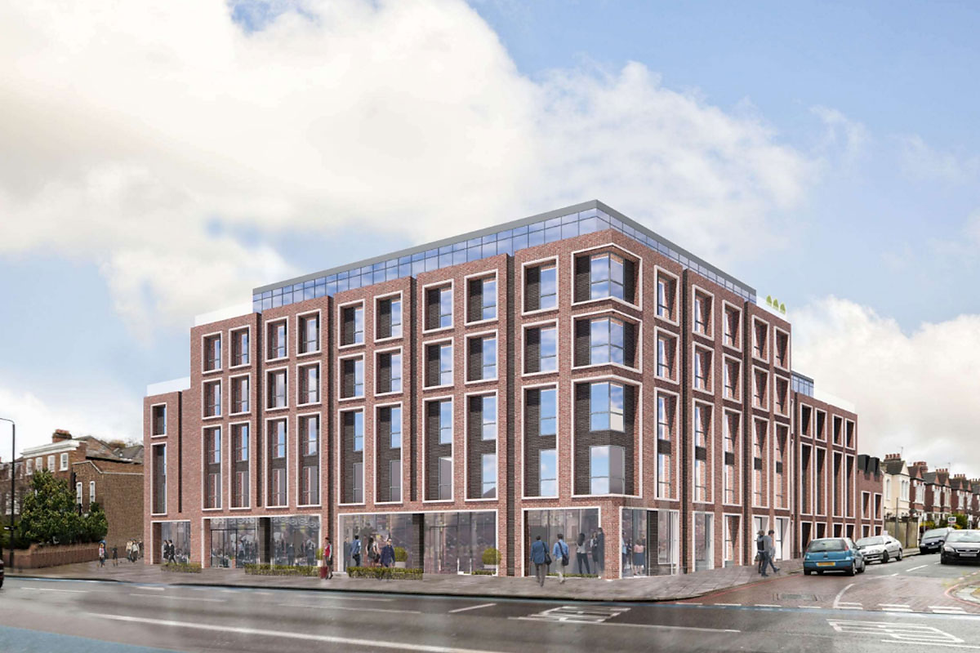Temporary Doesn’t Mean Second-Class: Rethinking Accommodation Standards in Local Government
- truthaboutlocalgov
- Sep 16, 2025
- 7 min read
Across the UK, councils are grappling with the growing pressures of temporary accommodation. From rural districts to dense urban boroughs, the issue is no longer confined to a handful of authorities it is a national challenge affecting thousands of families and individuals. The crisis is driven by a complex mix of factors: rising homelessness, a shortage of affordable housing, delays in social housing delivery, and the cost-of-living crisis pushing more people into precarious living situations.
For local authorities, the challenge is not only financial it’s deeply human. Temporary accommodation is meant to be a safety net, a short-term solution while longer-term housing is secured. Yet for many, it becomes a prolonged experience in environments that are often unsuitable, unsafe, and lacking in dignity. At its heart lies a fundamental question: are we providing vulnerable residents with safe, respectful places to live, or are we simply placing them wherever space allows?
The answer, too often, is the latter. Councils are under immense pressure to meet statutory duties, and in the absence of sufficient housing stock, they are forced to rely on fragmented, inconsistent provision sometimes in properties that fall far below acceptable standards. The result is a system that can feel reactive, disjointed, and at times, dehumanising.
In a recent episode of Truth About Local Government, I spoke with John Angus, Managing Director at Switch, to explore how his organisation is helping councils rethink temporary accommodation. What emerged was a compelling case for scalable, practical solutions that don’t compromise on standards and a call for local authorities to become more intelligent clients. John’s approach, rooted in hospitality and operational excellence, offers a blueprint for how councils can deliver temporary housing that is not only safe and compliant, but also respectful and community-oriented.
From Hospitality to Housing: A New Model
Switch’s journey into temporary accommodation began not with housing, but with hospitality. As a hotel management company operating large properties across the Midlands and South Coast, Switch was built on principles of customer service, operational excellence, and attention to detail. During the COVID-19 pandemic, while many providers closed their doors, Switch chose to keep its hotels open welcoming families in need of emergency housing.

This decision marked a turning point. Rather than treating temporary accommodation as a separate, lower-tier service, Switch applied its hospitality ethos to housing. Every resident was treated as a guest, with the same standards of cleanliness, safety, and respect that one would expect in a commercial hotel. This wasn’t just a branding exercise it was a cultural shift that challenged the prevailing norms in temporary housing provision.
The result is a model that blends consistency, safety, and community. This approach demonstrates that temporary accommodation can be both cost-effective and high-quality. It’s not about luxury it’s about dignity. It’s about recognising that families in crisis deserve more than a roof over their heads; they deserve a safe, clean, and welcoming environment where they can begin to rebuild.
Case Studies: Practical Solutions in Action
Switch’s model isn’t theoretical it’s already delivering results across the country. With 15 council contracts stretching from the Midlands to the South Coast and into London, the organisation has demonstrated that high-quality temporary accommodation can be both scalable and sustainable.
One standout example is the Birmingham Red 10 model, where Switch converted a fully operational 83-bedroom hotel into a dedicated temporary accommodation facility. Birmingham City Council committed to a three-year term, allowing Switch to offer a lower nightly rate while maintaining and even enhancing standards. This long-term partnership gave the council certainty and value for money, while families benefited from safe, well-equipped spaces with shared kitchens, laundry facilities, and outdoor play areas.
In London, Switch implemented a rolling 12-month block booking model. This approach provided consistency for both the council and the provider, replacing unpredictable variable rates with a stable, fixed-cost arrangement. It also eliminated the need for costly agents’ fees and allowed for better planning and oversight. The result? A safer, more efficient system that prioritises people over profit margins.
Another impactful case involved a large borough in London, where Switch conducted an audit of 250 residents housed across multiple hotels. The findings revealed significant overspending and a lack of health and safety checks. Within just four weeks, Switch relocated all 250 individuals into newly refurbished hotels with full compliance, shared amenities, and a complete audit trail. This rapid transformation not only saved money but restored dignity to the residents.

Beyond bricks and mortar, Switch’s commitment to community engagement sets it apart. In their Birmingham property, the team runs food banks before each school term, helps families with school uniform costs, and even organises toy drives once filling a meeting room with over 400 donated toys in just four days. These efforts are led by hospitality-trained staff who treat every resident as a guest, reinforcing the belief that temporary accommodation should never feel temporary in its care and standards.
Switch also provides councils with comprehensive reporting, including weekly room inspections, six-monthly health and safety audits, and quarterly customer feedback surveys. With over 1,000 residents across their properties, this data offers councils a clear picture of service quality and resident experience something few providers are willing to offer.
The Role of the Intelligent Client
To truly transform temporary accommodation, councils must move from passive purchasers to intelligent clients actively shaping the market rather than simply reacting to it. This means setting clear expectations, monitoring delivery, and building relationships with providers who share their values. John Angus emphasised that many councils still lack minimum standards for temporary accommodation. In one early meeting, a council officer admitted they were “just delighted” someone was willing to take families in. That lack of scrutiny creates a vacuum where poor-quality provision can thrive. In contrast, Switch has built its model around transparency and accountability. Their team conducts:
Weekly room inspections
Six-monthly health and safety audits
Quarterly customer feedback surveys, with QR codes in every room
Pre-arrival property surveys for every new guest
This data is shared directly with councils, giving them a clear picture of service quality and resident experience. Yet, as John noted, many providers avoid feedback altogether afraid of what they might hear. That’s not good enough. Councils must demand better and be willing to walk away from providers who can’t meet basic standards of safety, dignity, and care. Being an intelligent client also means understanding your own data. In Birmingham, the council was able to commit to a three-year block booking because they had a clear grasp of their volume needs. That certainty allowed Switch to offer a lower rate without compromising standards. Councils that know their numbers can negotiate better deals, reduce risk, and improve outcomes.

Procurement vs Progress
One of the most powerful moments in our conversation was John’s account of a missed opportunity. Switch had proposed converting five long-vacant tower blocks into high-quality social housing under a peppercorn lease. The council leadership and cabinet were enthusiastic. The model was financially viable, socially valuable, and ready to go.
But then came the procurement process. Despite political support, the project was stalled by rigid procurement rules requiring a full tender. Three years later, the buildings remain empty while the council continues to spend on costly, short-term accommodation elsewhere.
This isn’t a call to abandon procurement it’s a call to modernise it. Procurement should be a tool for achieving value, not a barrier to innovation. Councils must explore frameworks that allow for:
Speed and flexibility in urgent housing situations
Social value weighting in supplier selection
Direct award mechanisms where appropriate
Outcome-based commissioning rather than rigid input specifications
John’s experience shows that the best results often come from senior-level engagement director to director, not just buyer to bidder. When councils and providers can speak openly, share risks, and co-design solutions, the results are transformative.

A Culture of Care
What drives this work for John Angus isn’t just business it’s personal. Having experienced vulnerability in his own childhood, John understands what it means to rely on others for safety and stability. His parents separated when he was two, and his grandparents stepped in to support the family during difficult times. That lived experience has shaped the compassionate culture at the heart of Switch. During the COVID-19 pandemic, while many providers scaled back, Switch leaned in. They fed 15,000 children at their own cost, refusing to accept the idea that families in temporary accommodation should go without. But their commitment didn’t stop when lockdowns ended. Today, Switch continues to run food banks before each school term, helps families with school uniform costs, and provides toys for children once filling a meeting room with over 400 donated toys in just four days.
This isn’t charity it’s leadership. It’s a model of care that recognises the humanity of every resident. Staff are trained in hospitality, not just housing management, and every person is treated as a guest, not a case number. That language matters. It sets the tone for how people are welcomed, supported, and respected.
John’s team also supports families with transport costs, helps children settle into new schools, and ensures that properties are not just clean and safe, but warm and welcoming. These small touches often overlooked in traditional housing models make a profound difference in how people experience temporary accommodation.
This culture of care is embedded in every aspect of Switch’s operations. It’s not an add-on or a CSR initiative it’s the foundation. And it’s a reminder to councils and providers alike that temporary accommodation isn’t just about buildings. It’s about people. It’s about restoring dignity, building trust, and creating environments where families can begin to heal and rebuild.

Final Thoughts
Temporary accommodation will always be a component of our housing system. But it doesn’t have to be second-class. With the right partnerships, standards, and mindset, councils can deliver safe, sustainable, and dignified housing for those who need it most.
Switch’s model shows that it’s possible to combine financial viability with social responsibility, and that treating people with respect doesn’t cost more it pays dividends in outcomes, satisfaction, and long-term stability. As local government continues to navigate housing pressures, budget constraints, and rising demand, the challenge is clear but so is the opportunity. By becoming intelligent clients, reforming procurement, and partnering with values-led providers, councils can unlock homes and unlock hope.
Let’s raise the standard. Let’s make temporary accommodation a place of safety, not scarcity. And let’s never forget: temporary doesn’t mean second-class.






